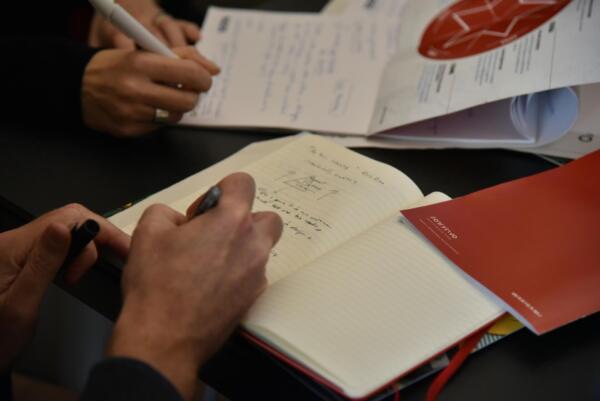When you want to increase your job satisfaction, you’ll probably think about what makes you happy. But chasing happiness is a little tricky. Because it is impossible to be happy all the time, chasing happiness can actually leave you feeling more unhappy. So what should you focus on? The key to feeling more satisfied at work is finding out why you do what you do and what gives you a sense of purpose and meaning.
According to a Harvard business review study, employees who feel there is meaning and significance to their work had a 1.7 times higher job satisfaction, were more than three times as likely to stay at their current workplace and were 1.4 times more engaged at work.
Simon Sinek’s Why
So how do we find our purpose? How do we know why we do what we do? In 2009, Simon Sinek – a British-American writer and motivational speaker – delivered one of the most watched Ted talks of all time. He presented the idea of the golden circle as a way to find and communicate why you do what you do.
The golden circle is a pretty simple concept. It is a circle with three parts, which are named ‘what’, ‘how’ and ‘why’. So what you do, how you do it and – most importantly – why you do what you do. Thinking about your ‘why’ is something that comes from deep within. It is deeply personal. You might be inspired or get ideas from other people, but in the end it is you that has to find your own personal meaning, your why.
It can be challenging to think about your ‘why’. In your brain, your ‘why’ is not rational. It’s emotional. Your ‘why’ is linked to your values and is rooted in your limbic system. Because your limbic system has no capacity for language, your ‘why’ is that ‘gut feeling’ that we talked about in our last blog and that gives you answers to decisions long before the mind can come up with a rationale for or against something.
How to find your why
If you want to find and articulate your why, it is time to look at the past and to your future. Take some time to go through events in your life that had a big impact on you, where you felt in flow and had a sense of being happy, on point, doing what you were supposed to do. What were these events? Do they have a common theme? Then, look at your future. Think about your big goal or mission in life. What is it? What do you want to achieve in your life, what do you want to be proud of when you are 80?
When you have found the answers to these questions, it is time to look at the present. Is what you want to achieve and what makes you tick aligned with what you do today? That’s great! Having a clear sense of your why could add meaning to what you already do – and therefore give you energy and motivation. If it is not aligned you could start thinking about how you could incorporate your ‘why’ into your life and if it’s time to make any changes.
Leadership in Action: Responsibility, Empowerment, and Delegation Letting go of what you built and put every ounce of energy you had into is hard. It's beyond hard. And yet, if you want to succeed, you need to start delegating decisions, ownership and even the things you know best. Otherwise, you …
Hiring for Cultural Fit This is the one thing that every Founder I talked to stressed the most: Getting the right talent in. Being critical at the front door. Only hiring A-players. Focus on ease and personal curiosity to find the right people - your gut knows who is right. …
Leading your startup works just fine, right? But does it feel improvised sometimes? Are you making it up as you go? Too much firefighting and time spent on random tasks and meetings? It does not have to be this way! To find what the biggest challenges are when leading …




